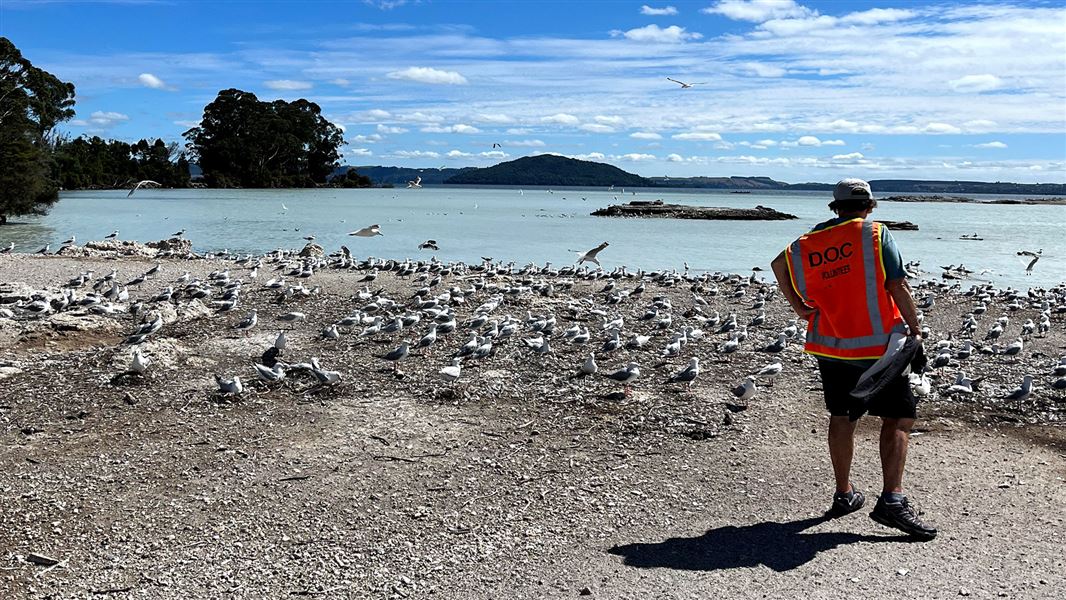Archived content: This media release was accurate on the date of publication.
Date: 01 February 2022
The survival of the 30 fledglings comes after almost a decade of non-productive breeding, as the colony battled flooding, human disturbance, and predation by rats, stoats, cats, and even the larger black backed gulls which are frequently observed in the area.
Typically, tarāpuka are found in the South Island, living on the gravel islands in braided riverbeds, with only about 5% of the population in the North Island. However, Rotorua’s Sulphur Bay has a special inland colony of around 400 birds which dates back to 1939.
“Tarāpuka can live for up to 25 years but with no fledged chicks in years, the long-term survival of this colony was starting to look slim. Our volunteers have monitored this colony for years and it’s been really disheartening to see no fledglings in previous seasons,” says Biodiversity Ranger Kelli Patterson.
“For many years, the nests have succumbed to flooding. We tried to help them by providing platforms for them to nest on, but they chose to nest in other parts of the bay. One year there was a heat event – possibly geothermal – which led to another non-productive year. In other years we've recorded predation from harriers and the larger gull species – it goes to show the range of threats the tarāpuka face.”
For the 2021/22 breeding season, the birds chose a site which hasn’t been affected by water levels and hasn’t attracted the attention of predators. Volunteers have maintained a trap network that was set up around the nesting area to help reduce predation and give the young chicks a better chance at fledging.
30 tarāpuka chicks have been banded, so DOC and the volunteers can monitor the colony in the future to see if these chicks will return to Sulphur Bay to breed. Cameras have been set up to monitor the colony during the summer months when nesting occurs.
“The colony of tarāpuka at Sulphur Bay are not out of the woods yet but the 2021/2022 breeding season has brought hope to the rangers and volunteers who have been caring for the colony.”
Tarāpuka are only found in New Zealand. The species’ conservation status recently improved to “At Risk – Declining” in the latest Bird Threat Classification Report, released in December, but they are still threatened by introduced predators like stoats, rats, and hedgehogs, and from habitat loss and human disturbance.
They primarily eat invertebrates and fish and are less likely to be found scavenging than the dominating black backed gulls which are also seen in the area and around landfill sites.
Contact
For media enquiries contact:
Email: media@doc.govt.nz
